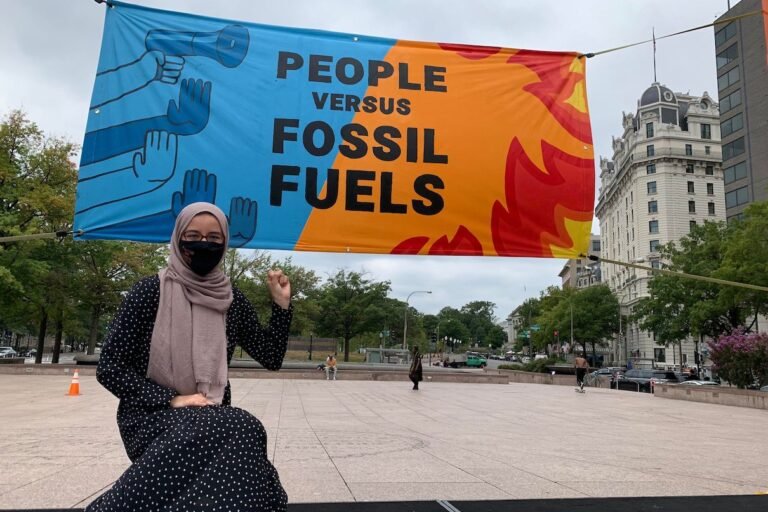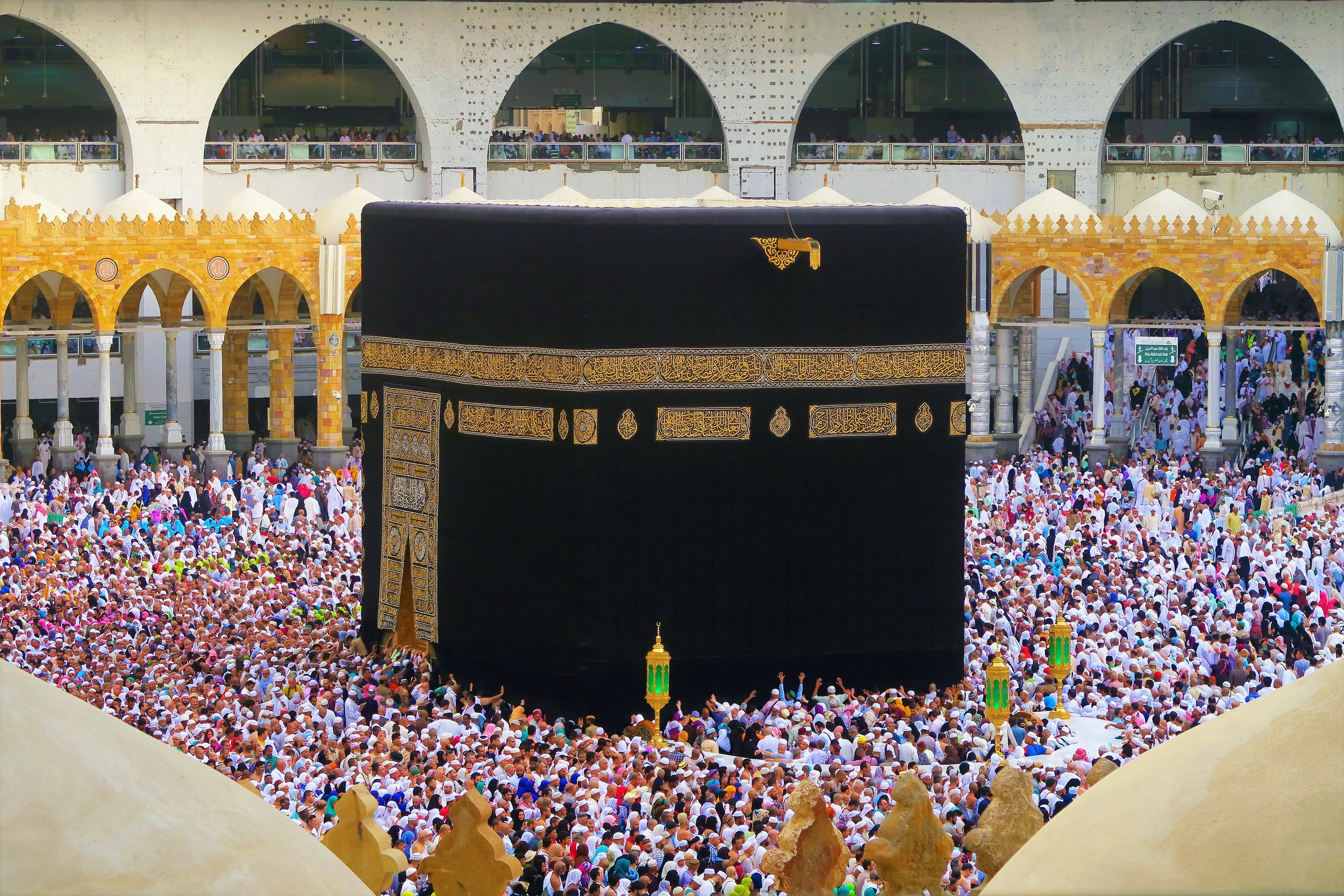By Memona Hossain
Muslims everywhere are currently observing Ramadan, a month of fasting and striving to grow their faith through prayer and acts of goodness.
This month also marked the release of the new IPCC report on climate change, which provided the world with an urgent call to action.
“The connection of the inner state of the heart with the outer state of physical action is the very point of intersection at which Ramadan and the new IPCC report meet. As Muslims focus on their worship…it is imperative that they make a very conscious commitment to connect their acts of worship towards the wellbeing of the Earth,” a new op-ed argues.
This post is a commentary. The views expressed are those of the author, not necessarily of Mongabay.
This month, Muslims across the world welcomed the month of Ramadan – a blessed month during which they fast and strive towards nurturing God-consciousness both spiritually and through acts of goodness. This month also marked the release of the new IPCC report, which provides a “how-to guide to defuse the climate time-bomb,” as described by UN Secretary General António Guterres. However, what characterized this report was a hopeful urgency in the call to action. The report calls for a joint commitment by all of humanity to participate in a global effort towards a radical shift in the impacts of climate change.
As the IPCC Working Group II Co-Chair, Debra Roberts explained last year, “Our assessment clearly shows that tackling all these different challenges involves everyone…working together to prioritize risk reduction…in this way, different interests, values and world views can be reconciled…” Different perspectives, world views, and approaches to understanding and connecting with the Earth’s wellbeing, must cooperatively form the climate action narrative.
Muslims and the Islamic world view play a role in this. The Pew Research Center identifies a global Muslim population of more than 1.9 billion, which is projected to grow significantly in the coming years. With more than 50 Muslim-majority nations in the world, along with a significant number of Muslims living in places like Europe and North America, the climate change discourse impacts Muslims bilaterally. Many Muslim nations are bearing significant impacts from climate change, while others are also living in nations that are actively contributing to climate change. An understanding of how the Islamic framework can contribute to the collective climate change narrative is crucial, and in the wake of the new IPCC report, Ramadan is an opportune time to reflect on this.
Muslim youths participating in a nature study in Canada based on Islamic teachings on the environment. Image by Fadeelah Hanif/Green Ummah.
My research depicts some insight in the Muslim environmental philanthropy narrative. Within the Islamic worldview, all things living on the Earth are perceived to be in a shared glorification and worship of God, as found in the Qur’an,
تُسَبِّحُ لَهُ ٱلسَّمَـٰوَٰتُ ٱلسَّبْعُ وَٱلْأَرْضُ وَمَن فِيهِنَّ ۚ وَإِن مِّن شَىْءٍ
إِلَّا يُسَبِّحُ بِحَمْدِهِۦ وَلَـٰكِن لَّا تَفْقَهُونَ تَسْبِيحَهُمْ ۗ إِنَّهُۥ كَانَ حَلِيمًا غَفُورًۭا ٤٤
“There is not a single thing that does not glorify His praises—but you simply cannot comprehend their glorification. He is indeed Most Forbearing, All-Forgiving,” (translation) 17:44.
To uphold the sacred, interconnected spiritual connection between all of creation is a sacred responsibility. And the month of Ramadan is a month that should nurture and strengthen that responsibility, as the Qur’an states the purpose of Ramadan as being:
يَـٰٓأَيُّهَا ٱلَّذِينَ ءَامَنُوا۟ كُتِبَ عَلَيْكُمُ ٱلصِّيَامُ كَمَا كُتِبَ عَلَى ٱلَّذِينَ مِن قَبْلِكُمْ لَعَلَّكُمْ تَتَّقُونَ ١٨٣
“O you who have believed, decreed upon you is fasting as it was decreed upon those before you that you may attain God-consciousness,” (translation) 2:183.
Greenfaith representatives attending a 2021 People vs Fossil Fuels action in Washington, D.C., demanding that U.S. President Biden stop funding fossil fuel projects. Image courtesy of People vs. Fossil Fuels
Deepening the consciousness of the Creator implies that one should develop an appreciation, love, and authentic form of care for what has been created by God. And the act of glorification and worship which is shared by all communities of beings on the Earth is a sacred bond which must be carefully tended to. The connection of the inner state of the heart with the outer state of physical action is the very point of intersection at which Ramadan and the new IPCC report meet. As Muslims focus on their worship as well as acts of service to humanity, it is imperative that they make a very conscious commitment to connect their acts of worship towards the wellbeing of the Earth this Ramadan.
As the United States Institute of Peace so aptly puts it, climate action “…urgently requires that we build partnership and synergy with a powerful group of allies: religious communities…who form an unparalleled channel to billions of hearts and minds.” The message that comes from religious leaders, the stories that touch hearts through belief systems, and faith-based action have greater impetus to inspire change, than numbers and graphs. The intersection of Ramadan and the new IPCC report can also welcome meaningful conversations on how the Islamic worldview can be part of the wider climate change narrative.
Participate or help organize community green or zero-waste iftars (the meal eaten at sunset to open the fast)
Invite local Muslim environmental groups to speak about topics related to Islam & the Earth
Partner with and/or fund local mosques & Islamic centers on green initiatives
Ensure Muslim representation in key environmental roundtables and decision-making processes
As a new Oxford University study has recently verified, simply having human-to-human conversations are “crucially important” for mobilizing climate action, and can help make meaning (and process emotions) invoked at times of crisis. Cutting across all beliefs, knowledge systems, and ways of life, climate change is calling on us to form a uniquely unprecedented response narrative.
Greenfaith delegate attending a 2021 People vs Fossil Fuels event in Washington, D.C., demanding that U.S. President Biden stop funding fossil fuel projects. Image courtesy of Tasnim Mellouli.
Memona Hossain is a PhD Candidate in ecopsychology and has been a lecturer at the School of Environment, University of Toronto. Hossain serves on the Board of Directors for the Muslim Association of Canada, Faith & the Common Good, and the Willow Park Ecology Centre, is an advisor & content contributor for Faithfully Sustainable, and has most recently launched the Islam & Earth project.
This piece was originally published on Mongabay on April 11, 2023.








